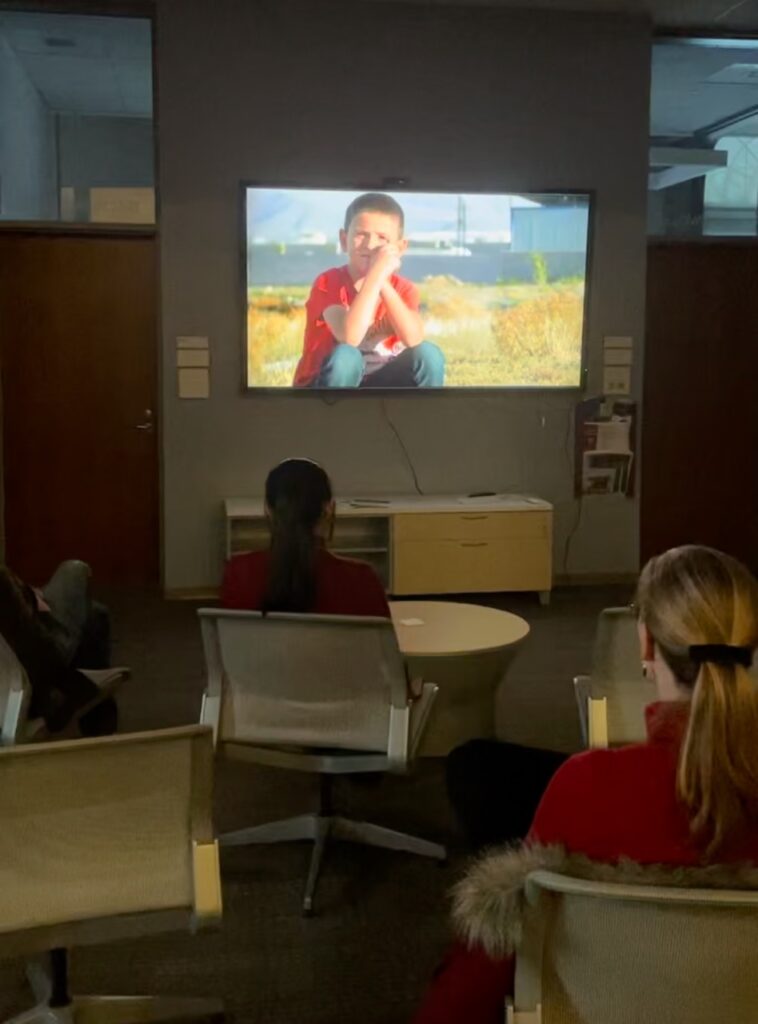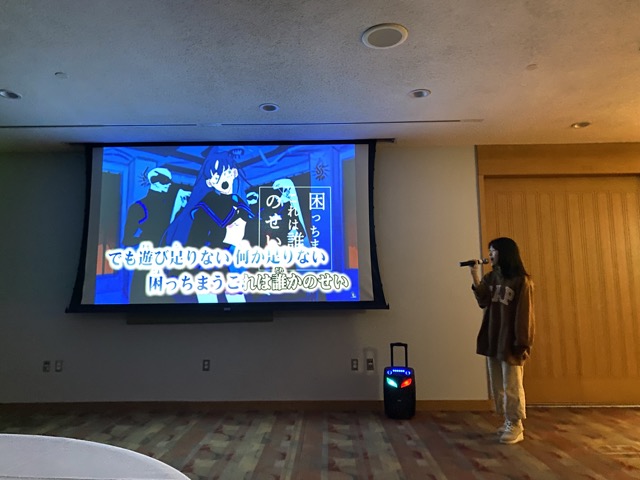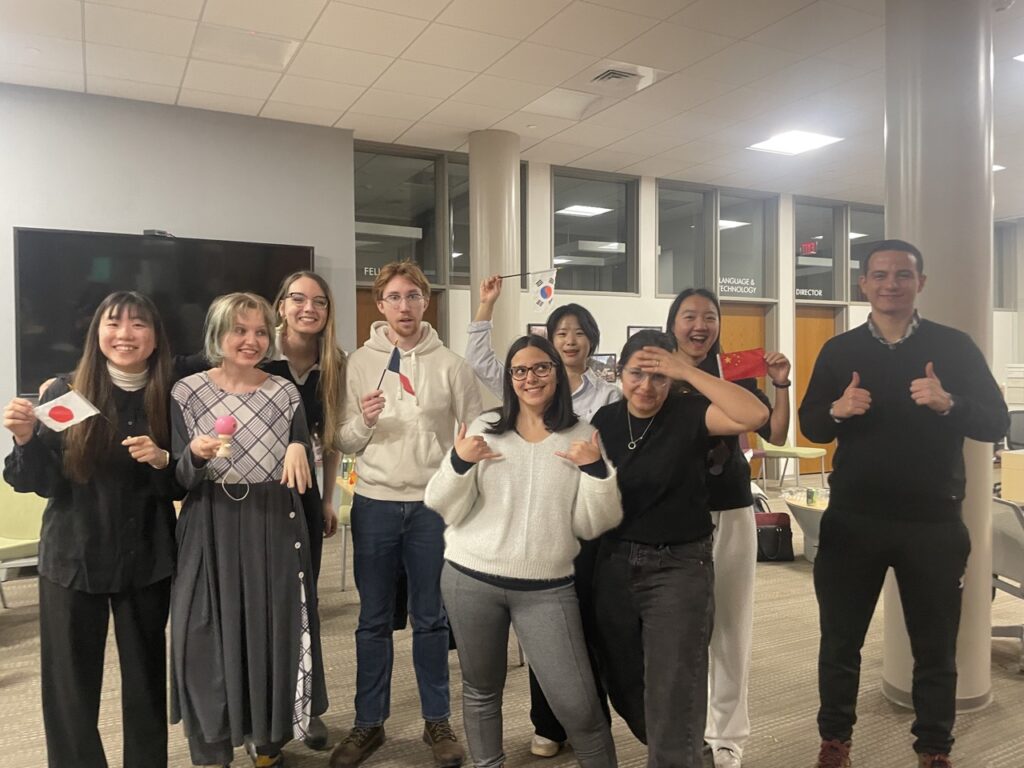by Oleksandra Volakova
Power of Language Week is an annual event aimed to bring together multilingual students worldwide and help them share their cultural experiences with peers, staff, and faculty. This year, the second annual weeklong initiative was organized by a committee spearheaded by Global Language and Outreach Fellow Thais García Bagué. It took place from February 16 to February 23, successfully hosting 28 unique events, organized and led Wesleyan students across the globe. The events elucidated various aspects of foreign countries, featuring culture, traditions, games, cuisine, and language.

Power of Language Week is timed to International Mother Language Day, occurring this year on February 21. It was first proclaimed by UNESCO to underline the importance of remembering and honoring your mother tongue.
This week launched off with the screening of a documentary film “School Amidst the Wilderness”, by Hassan Almohammed, Visiting Associate Professor of the Humanities. It portrays Syrian children who came as refugees to Türkiye and established an improvised school in the middle of their refugee shelter to continue their education. The film explores the children’s relationship to their mother tongue, Arabic, while living in a new country where a different language, Turkish, is spoken.
International students shared their stories and struggles during “Multilingual Storytelling & Open Mic,” as well as discussed what commonalities or unique features students from different backgrounds have.
The beauty of cultures and traditions was discovered throughout a variety of other events. ”Voices from Around the World” was organized by international students from Burundi, Ethiopia, and Bulgaria, with each student featuring music, fascinating facts, native languages, and fun stories about their respective country. The student from Bulgaria, Vik Georgieva ’27, commented, “I really enjoyed the videos of the Burundian drums that Holiness [the student from Burundi] played because they are so central to the culture. Also, Tihitina’s Ethiopian recommendations were great— everyone should listen to more Ethiopian jazz!” She points out that the audience was impressively engaged, citing that questions from the participants contributed to the event going smoothly.

Tihitina Gebeyehu ’27, the event’s organizer from Ethiopia, also enjoyed working together on a presentation. She learnt a lot from other presenters, and because of the genuine curiosity of both professors and students, she “felt like I was representing my country and that my culture is also valued. Talking about the beauty and history of my country made me truly happy. Moreover, it was also a little trip back home for me.” Tamiraa Sanjaajav ’27, an attendee of this event who is from Mongolia, remarked that she “felt like I had traveled the world a bit and it was honestly really fun. I enjoyed hearing about Holiness’ presentation on Burundi and I have added Burundi to my travel bucket list.”
“Don’t Gift a Clock or you will die” shared how Mongolian and Ukrainian superstitions influence people of those countries. Guests were impressed with the number of peculiar beliefs that make no sense unless taken into consideration the history and ideology of the ancestors. Back then, people were convinced that their lives were regulated by preternatural power and nature itself, so they passed this knowledge through generations. Prevalence is a reason why superstitions became popular despite their strangeness and irrelevance.

Wesleyan’s Foreign Language Teaching Assistants, or FLTAs, also organized the FLTA Carnival, an event full of international games and snacks for the students. Nao Tsujii, the Japanese FLTA, described the event as a fun chance for students to interact with other cultures through food and games: “Attendees had the chance to explore traditional games from different countries, savor snacks representing various cultures, and listen to international tunes,” she said. When asked about the educational opportunities granted by the event, she mentioned that it was a good space for students to use their newfound language skills in a social context: “One of the highlights was the opportunity to practice their language skills with FLTA members and classmates, adding a great chance for their language and culture learning”. Visitors challenged themselves in various games, including Korean Gonggi, dominoes played Puerto Rican-style, French pétanque. Nao introduced Kendama – a traditional Japanese skill toy that consists of a wooden handle with a cup and spike on either end, connected by a string. The objective is to catch the ball on one of the cup’s surfaces or on the spike using various techniques, such as swings, balances, and catches. It requires precision, coordination, and focus, making it a popular pastime for people of all ages. Although it is a very difficult toy, some students managed to get the ball onto the cup! There were more fascinating pastimes from other countries, hot spicy snacks from China, macarons produced in France, Italian cookies, Japanese mochi, and Puerto Rican plantain chips.
This year’s Power of Language broke the record with 28 fascinating presentations over only one week. Both domestic and international, Wesleyan students, staff, and faculty learned more about unique cultures and shared their stories through fun activities and spectacular presentations. “What stood out for me was how diverse and welcoming the event spaces were. I look forward to learning even more about different languages and cultures during next year’s Power of Language Week,” Tamiraa shared.


